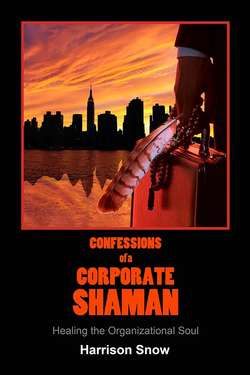Читать книгу CONFESSIONS OF A CORPORATE SHAMAN - Harrison Snow - Страница 23
На сайте Литреса книга снята с продажи.
I and Thou
ОглавлениеA favorite book of mine is I and Thou by the Jewish mystic Martin Buber.10 Buber’s theme is that a relationship can be one of engagement and presence—that is, I and Thou—or one of objectification for utilization or gratification—I and It. Obviously the former requires more from us spiritually, psychologically, and emotionally. The more we bring to our “meeting” with the “other,” truly seeing and relating, the more there is the fullness of an authentic relationship. A networking event where people shake hands while looking around for someone who is a better contact typifies an I and It relationship. The opposite of that distracted handshake is an intimate, often unexpected, moment where you truly see the other and in turn are seen. A chance meeting with a stranger on a bus or chatting with a family member while washing the dishes may unexpectedly offer the nurturing space of I and Thou.
Something Buber does not dwell on, however, is the tendency of some to indiscriminately and unconsciously relate to others in the mode of I and Thou. The term “unskilled empath,” coined by Rose Rosetree, a workshop leader and author, describes this trait.11 If you are an unskilled empath, too often you lose your sense of self as you listen attentively to the unrestrained chatter of another. Afterward you feel tired and burdened with emotions that are not your own. Rose suggests one antidote is to consciously and selectively relate from the perspective of I and It. The habitual I and Thou relater is not obligated to always feel what others are feeling. Adjusting this inner relating from a “Thou” to an “It” enables the empathic person to consciously maintain the energetic boundaries that define a healthy sense of self.
Other subtle aspects affect the quality of how we relate to each other. According to Thomas Hübl, a German mystic who resides in Israel, we are so busy with our own internal stories we cannot see with fresh eyes the people in front of us. Their essence is revealed when we let go of our preconceptions based on the past. Intimacy happens in moments that transcend time or past experience. If we view life like a professional moviemaker views a movie, according to Hübl, we sense the backstory that underlies each scene. A part of us becomes the observer who does not get lost in the drama being acted out.12 That space of the observer is where the use of self and the knowing field intersect.
